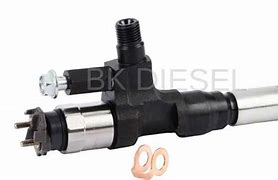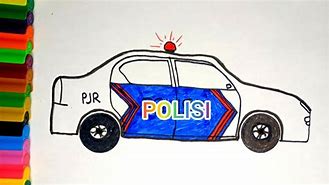
Hino J08E Injector Cups
European leagues & cups
This overview lists all European leagues and cup competitions. For each competition, the table lists the number of participating clubs, the number of players, the average age of all players, the percentage of players on loan from other countries in the respective country and the total market value of all clubs in the competition. By clicking "Forum", you can access the forum for the corresponding country.
GB1ES1IT1L1FR1PO1NL1TR1BE1RU1GR1A1UKR1C1DK1TS1SC1NO1SE1SER1PL1RO1KR1BU1UNG1
Jalan Raya Jemursari No.58, RW.08, Jemur Wonosari, Kecamatan Wonocolo, Surabaya, Jawa Timur 60237, Indonesia
Aplikasinya bagus banget woii Tapi kekurangannya ada di suara Hero nya kadang suaranya heronya gak sama kayak skinnya tapi gak papa ini masih okey aja sih, Tinggal nunggu update selanjutnya untuk dibenerin pokoknya aplikasi nya bagus banget,tapi bug kadang bisa kadang enggak sih,tapi lumayan dah walau gak bisa dilihat org lain tapi gw setidaknya bisa tau,gimana rasanya main pake skin mahal. Thanks yang udah bikin mazzrenn injector
217 orang merasa ulasan ini berguna
Masih banyak bug nya nanti kalo bug2 nya udh hilang semua, nanti baru aku coba lagi !! Soalnya pernah pake hp ku jadi macet¬≤ pas dalam game, dan ku coba hapus file nya ttp gk bisa di hapus karena udh nempel ke akun ML nya jadi aku restart ulang hp ku üòÖüòÖ Baru lah stabil lagi Semoga di baca sama Mazzren injektor. Supaya bug nya di hilangin lagi. Itu aja sih klu nya Tetap sukses yg buat APK nya üôè
169 orang merasa ulasan ini berguna
Enter the volume in cups below to calculate the weight in kilograms.
How to Convert Cups to Kilograms
Since cups are a unit of volume and kilograms are a unit of mass, which are different physical quantities, we need to know one more physical quantity of the ingredient or substance to convert between them. In this case, we need to account for the density of the substance whenever we do a conversion.
Therefore, to convert between cups and kilograms of an ingredient or substance, we must either multiply or divide by its density, depending on which direction we are performing the conversion.
Tongkat Ali Ginseng White Coffee
Introducing THECUPS Tongkat Ali & Ginseng Cappuccino Coffee, where tradition meets innovation. Crafted from pure natural extracts of Tongkat Ali and Ginseng root, both revered for their countless virtues since ancient times, this coffee is a testament to the power of nature’s bounty.
Each sip of our Cappuccino Coffee is infused with the essence of these time-honoured herbs, carefully selected to deliver a harmonious blend of flavour and function. Experience the rich history and unparalleled benefits of Tongkat Ali and Ginseng with every indulgent cup.
Elevate your mornings to a new level of vitality and well-being with THECUPS Tongkat Ali & Ginseng Cappuccino Coffee. Energize your body, sharpen your mind, and savour the exquisite taste of tradition reinvented.
When to Convert Cups to Kilograms
Cups and kilograms are both commonly used to measure cooking ingredients.
For cooking applications, most chefs suggest measuring dry ingredients by weight rather than volume to improve accuracy in the measurements.[1] The density of dry ingredients can vary for a variety of reasons, such as compaction and clumping.
The best way to ensure an accurate conversion is to use a scale. When a scale is not available, a calculator like the one above is a good way to estimate the volume to weight conversion.
Another useful application of weight and volume conversions is chemistry. When performing chemical reactions by combining separate chemicals to produce a new chemical, one must know the exact amount of each chemical to add in order to maximize the yield of the reaction.
It is common to mix powdered chemicals with liquid, or aqueous, chemicals, and this is where it becomes very useful to convert between weights and volumes.[2]
A third application of weight and volume conversions is when shipping freight when calculating the volumetric weight for cargo and packages. Trucks, ships, and airplanes are limited in the amount of weight or volume they can transport, so if one of those quantities is known, but the limitation is on the other, then it becomes necessary to convert between the two so as not to overload the shipping vehicle.
Keep reading to learn more about each unit of measure.
The cup is a unit of volume equal to 16 tablespoons or 8 fluid ounces. The cup should not be confused with the metric cup or the teacup, which are different units of volume.
One standard cup is equal to 236.588 milliliters, but for nutrition labeling, one cup is defined as 240 milliliters.[3] To further confuse things, a metric cup is equal to 250 mL, while in Japan, a cup is equivalent to only 200 mL.
The cup is a US customary unit of volume. Cups can be abbreviated as c, and are also sometimes abbreviated as C. For example, 1 cup can be written as 1 c or 1 C.
Learn more about cups.
One kilogram is equal to 1,000 grams, 2.204623 pounds, or 1/1,000 of a metric ton.
The formal definition of the kilogram changed in 2019. One kilogram was previously equal to the mass of the platinum-iridium bar, known as the International Prototype of the Kilogram, which was stored in Sèvres, France.
The 2019 SI brochure now defines the kilogram using the Planck constant, and it is defined using the meter and second.[4] It is equal to the mass of 1,000 cubic centimeters, or milliliters, of water.
The kilogram, or kilogramme, is the SI base unit for mass and is also a multiple of the gram. In the metric system, "kilo" is the prefix for thousands, or 103. Kilograms can be abbreviated as kg; for example, 1 kilogram can be written as 1 kg.
A kilogram is also frequently referred to as a unit of weight. While technically, a kilogram is a measure of mass, and weight is actually a measure of force, the two are equivalent as long as we are performing our calculations on Earth.
For example, an object with a mass of 1 kilogram weighs 1 kilogram on Earth, but only weighs one-sixth of that on the moon, yet still has the same mass.
Learn more about kilograms.
INDOMOBIL HINO merupakan group bisnis dealership Hino yang dimiliki atau dikelola oleh Indomobil. Indomobil Hino ditunjuk sebagai dealer resmi PT. Hino Motors Sales Indonesia bergerak dalam jasa penyediaan Truk & Bis , layanan service dan spare part merk Hino.
Memulai bisnis sebagai dealer Hino di Gubeng, Surabaya, Jawa Timur tahun 1995 dengan PT. Indomobil Prima Niaga dan PT. Indosentosa Trada di Soekarno Hatta, Bandung, Jawa Barat dan seterusnya tahun 2001 di Kletek, Sidoarjo, Jawa Timur.
Indomobil Hino Group terdiri dari beberapa perusahan yaitu : PT. Unicor Prima Motor, PT. Indomobil Prima Niaga, PT. Indosentosa Trada, PT. Indomobil Cahaya Prima dan PT. Indomobil Sumberbaru
Program Perawatan & Perbaikan
Dapatkan service gratis hingga 100rb KM hanya di Indomobil Hino
Sales Hino Surabaya merupakan dealer utama untuk penjualan bus dan truk merek Hino wilayah Jatim. Didukung dengan fasilitas pelayanan komprehensif, Dealer Hino Jatim senantiasa berusaha meningkatkan kualitas bagi pelanggan, baik dari segi kenyamanan, lokasi, dan fleksibilitas. Sales Hino Surabaya siap memanjakan pelanggan melalui layanan penjualan (sales) hingga purna jual (after sales) yang menyeluruh, termasuk pengadaan suku cadang (spareparts) dan layanan perbaikan kendaraan (service).
Dealer HINO pertama di indonesia yaitu menjadi main dealer penjualan,perawatan & penyediaan suku cadang truck HINO untuk wilayah Surabaya. HINO telah menyempurnakan truck generasi terbaru dari HINO DUTRO & RANGER untuk menjawab semua permintaan dari para penggunanya yang menginginkan sebuah truck kecil dan besar yang sempurna.
Kini hadir HINO DUTRO truck kargo terpanjang dikelasnya. Dilengkapi mesin bertenaga 115ps & 136ps. Menjadi truck tangguh & dapat diandalkan. Dengan desain baru yang lebih aero dinamis,hemat bahan bakar,kabin yang nyaman dan juga mudah dikemudikan. Perubahan besar di segi ketahanan,kemampuan,dan keamanan berkendara ini mendekati sebuah kesempurnaan yang kita harapkan.
Adi SALES EXECUTIVE Telp/sms : 0812-3150-2345 (Wa) Telp/sms : 0812-3150-2345 Sales Hino Surabaya.Com
Cups to Kilograms Formula
To convert a measurement in cups to kilograms, multiply the volume by the density of the ingredient, substance, or material. Note that in order for this to work, the density must be in kilograms per cup (kg/c).
If the density is given in grams per milliliter (g/mL), then first divide the density by 4.2268 to convert to kg/c.
For a density given in g/mL, you can use this simple formula to convert:
kilograms = cups × density / 4.2268
Thus, the weight in kilograms is equal to the volume in cups times the density (in g/mL) of the ingredient or material divided by 4.2268.
here's how to convert 5 cups to kilograms for an ingredient with a density of 0.7 g/mL.
kilograms = 5 c × 0.7 g/mL / 4.2268 = 0.8281 kg



